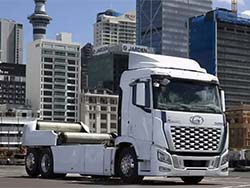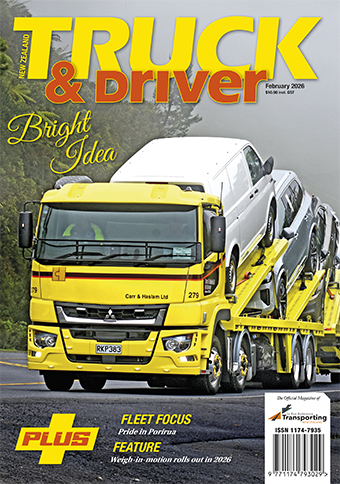
New Zealand's Low Emission Transport Fund Concludes, Pivoting to a New Era of Targeted Investment
Posted: 24-Jul-2025 |
Since its inception in 2016, the Low Emission Transport Fund (LETF), managed by New Zealand's Energy Efficiency and Conservation Authority (EECA), has served as a critical catalyst in the nation's journey towards a decarbonized transport sector. The fund, which began as the Low Emissions Vehicle Contestable Fund, successfully supported organizations by offsetting the significant upfront costs associated with adopting low and zero-emissions vehicles, charging infrastructure, and related technologies.
After facilitating hundreds of projects, the EECA has announced that the fund has now concluded in its current form, signaling a strategic shift towards more targeted investment initiatives.
Over its lifespan, the LETF and its predecessors have made a substantial impact on New Zealand's transport landscape. The government invested $100.5 million across 359 approved projects.This public funding was a powerful lever, attracting an additional $265.5 million in private investment from applicants, creating a total injection of over $366 million into the country's low-emissions transport ecosystem.
The fund's scope was comprehensive, addressing several key areas of the transition. It encompassed the broader LETF, the original Low Emission Vehicle Contestable Fund, dedicated rounds for public EV charging, and a specialized Low Emissions Heavy Vehicle Fund.This multi-faceted approach ensured that support was directed towards various critical components of the transport system.An interactive spreadsheet detailing every co-funded project remains available for public review, offering a transparent record of the fund's extensive reach.
A key element of the government's strategy was the Low Emissions Heavy Vehicle Fund. This initiative provided "first in, first served" grants targeting a sector that is notoriously difficult to decarbonize. The fund specifically covered a portion of the purchase price for new battery-electric or hydrogen fuel cell electric vehicles with a gross vehicle mass of 5.9 tonnes or more.It also supported the conversion of existing heavy diesel vehicles to hydrogen-diesel dual fuel or diesel-electric plug-in hybrids, demonstrating a pragmatic approach to transitioning the existing fleet.
The real-world success of this co-funding is evident in case studies from leading New Zealand companies. Firms such as Fulton Hogan, Reliance Transport, and Leach & Co. have trialed co-funded electric off-road vehicles and machinery, with operators and business leaders reporting positive experiences.These trials prove the viability and growing popularity of electric machines in demanding commercial environments.
With the conclusion of the broad contestable fund, EECA is evolving its strategy. The organisation is now developing "targeted investment initiatives" designed to support the adoption of new fuels and technology solutions tailored to the specific needs of New Zealand's diverse regions.
This signals a move away from a one-size-fits-all model towards a more focused, strategic deployment of capital.This new approach could concentrate on regional hydrogen hubs, advanced biofuel development, or specialized charging infrastructure for unique local industries, reflecting a more mature phase in the country's energy transition. This strategic pivot is consistent with EECA's broader mandate to help businesses and public sector organizations improve energy efficiency and transition away from fossil fuels.
The LETF operated alongside other significant government programs, such as the Government Investment in Decarbonising Industry (GIDI) Fund, as part of a comprehensive national effort to meet climate goals.
For businesses seeking support, EECA encourages direct contact via email for specific transport co-funding inquiries, while the agency's newsletter will provide the latest updates on future business support opportunities.



 + EQUIPMENT GUIDE - FREE
+ EQUIPMENT GUIDE - FREE
